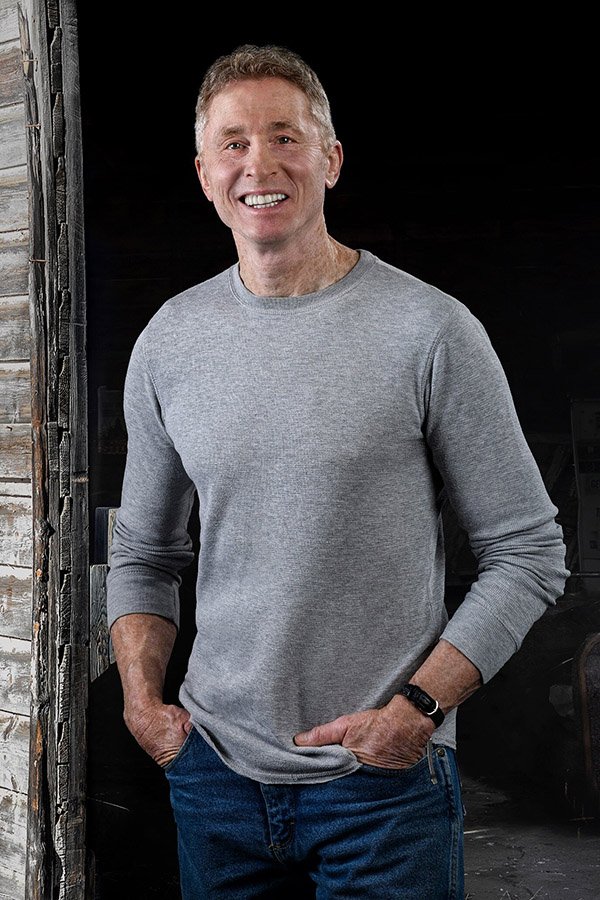Who is Dave Carty?
I knew I wanted to be a writer when I was 13. I was the kid who, back in those halcyon years of the mid sixties, would stand at the magazine rack in the hardware store and read comic books and outdoor magazines, then put them back in the rack so I didn’t have to buy them. When I visited my second cousin at a game refuge in Oklahoma, I fell in love with the idea of working with wild animals, and I returned home with a plan: When I grew up, I would write for outdoor magazines about wild animals. That seemed like a neat trick to me: I would get to spend time outdoors and write about my experiences, for writing was virtually the only thing I excelled in at school.
It didn’t quite work so smoothly, of course, and it took many years to get there, but eventually I did begin to write about the outdoors, for a variety of magazines. But I also wrote about a lot of other things: flying with the Blue Angels, car racing at Laguna Seca, the World Series of Poker, and dozens of other events was sent to cover as a freelancer. I wouldn’t trade those experiences for the world.
Still, something was missing. In the back of my mind, I had always wanted to write in a way that allowed me to express myself as a story teller. I wrote my first novel in my mid-thirties – a book I pray will never be published – but I was hooked. Over the course of the next 25 years, when I wasn’t writing for magazines, I wrote three to four complete novels (and started, then abandoned, others) in my spare time. Few were warmly received and none were published. But I honed my craft.
I’ve been asked why I write literary fiction, rather than choosing a genre like, say, mysteries or thrillers, which have much larger potential audiences. That answer is a simple one for me to answer: I write the kind of books I like to read. Writers from John Steinbeck to Kent Haruf to Cormack McCarthy have had, and continue to have, a tremendous influence on me, not so much stylistically – although they’re wonderful stylists – as from the emotional depth of their stories. It really is that simple: since I’ve always loved John Steinbeck, I wanted to write like him, too.
I’ve also been asked where my ideas for stories come from. And again, I have an easy answer: I don’t know. I’ve been seized by ideas while driving my car on a road trip and been woken up by them in the middle of the night. I’ve learned that these bursts of inspiration are fleeting, so I write them down as quickly as I can. When I have a page or two of ideas moving in the same general direction, I have what I need to begin a book.
And then the fun begins.
I have been living for many years now in a home I built for myself in southwestern Montana. I built the home myself for two salient reasons: I wanted to do so and I couldn’t afford to buy a home outright.
Building my own home had long been a dream of mine. When, in the late eighties, I received a small early inheritance from my mother, I had the seed money I needed to begin. I completed the house in 1992.
In some ways, building a home is like writing a novel. It’s a gargantuan task to undertake, far too big to accomplish in one extended push, no matter your stamina. (Full disclosure: during the two years it took to build my home, good friends sometimes lent a hand, for which I was eternally grateful.) Instead, the only way to get through a project like building a house or writing a novel is to build one room or write one chapter at a time. The project is finished when you run out of projects.
Although I’m often accused of being retired, I most certainly am not. I write most days, usually for several hours in the morning, but when I’m done writing I have a variety of other hobbies that I love and actively pursue. The first is bird hunting over my English Pointers, a sport I’ve loved since the age of nine or ten. In the fall I’m up in the mountains or out on the prairies several days each week from September through December.
The rest of the year I spend reading, ballroom dancing and occasionally, woodworking. My reading: I am in thrall to writers who seem to have read every great novel ever written, by authors in some cases that I have not yet heard of. When do they find time to eat and sleep? I’ve been reading everything I could get my hands on since the age of 6. If I didn’t have a book, I’d read a magazine, and if I didn’t have a magazine, I’d read the back of the cereal box at breakfast.
But I’m nothing like expedient. I enjoy the act of reading too much to race through a well-written book. Instead, I read slowly, often re-reading passages that are particularly good, taking weeks off at a time to complete other projects. It may take me two months or more to work through a book, even a very good one. When I find a writer I like, I’ll read more books by him or her. An example, by no means all-inclusive, of writers I keep returning to are Kent Haruf, John Steinbeck, Ann Patchett, Jim Harrison (whom I’m proud to say was a drinking buddy of mine), Michael Ondatje, Cormac McCarthy, Pete Fromm, Ernest Hemingway, Billy Collins…there are many more.
A typical day for me begins with a cup of coffee just before or just after the sun rises, sitting in the leather recliner in my small living room. Then if it’s my day to exercise I exercise, and if it’s my day build furniture, I build furniture, and if it’s my day to write, I write.



